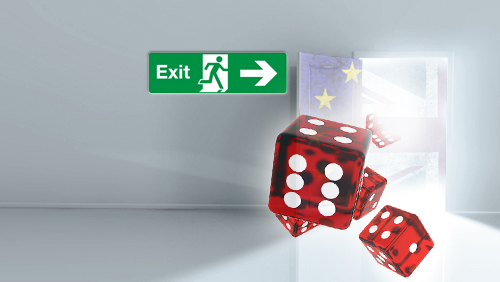In June, the United Kingdom will vote on leaving the European Union, the so-called Brexit. The “In” camp has a 10 point lead as of now over the “out” camp, but that could change in the next three and a half months. The vote may be a close one, though if Scotland’s recent rejection of independence from the UK is any indication, the prevailing mood seems to be one of not rocking the boat too much.
But what would be best for business in general, and for the UK gambling industry in particular? The answer is probably that staying would be better. Here’s why. The EU both harms and helps businesses in different ways. The most positive aspect of the EU’s existence is that it makes trade easier by keeping the politicians of each EU country from building very high protectionists tariffs around their respective countries. Protectionist barriers still exist, particularly against UK books, but the EU makes them less of a serious problem. That’s a good thing, but that doesn’t mean that the existence of the EU is absolutely necessary for keeping free trade flowing.
Trade barriers lead to wars, which is the absolute worst thing for every business except the business of destruction. But if the UK votes to leave the EU in its June referendum, there is still no inherent reason for the UK to suddenly raise a bunch of tariffs against its European neighbors. Leaving the EU only raises the possibility that trade barriers will start being erected because UK politicians will no longer be paid by taxpayers to prattle and vent to each other in Brussels. Think of the EU as a giant blackmailing scheme by European politicians against taxpayers, where UK taxpayers specifically are forced to pay £50M a day in membership fees (according to George Galloway) to smug “Great Men” who throw themselves lavish dinner parties in taxpayer funded steel and glass skyscrapers. As long as they’re all being paid off, as long as they get their membership fees, they promise not to erect trade barriers – there’s your blackmail.
Now, the blackmail price may indeed be worth it if it stops trade barriers from being erected. But if theoretically the UK pledges to keep the same level of free trade while out of the EU as they did in it, then UK businesses would be much better off not paying the blackmail fees and just continue trading. It would make everyone in the UK £50M a day richer collectively. Should we expect trade between the UK and the rest of Europe to remain as free as it is now if the UK leaves the EU? Probably not, because it would require sincere nobility of the UK political class, of which there is very little to none.
